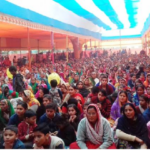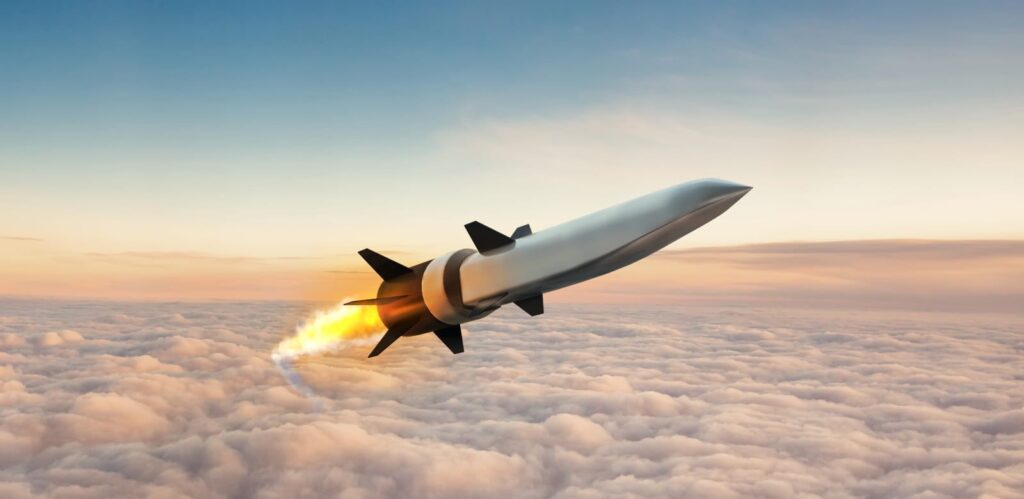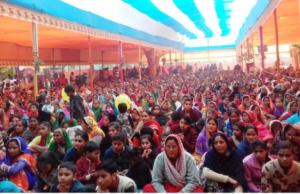Russia has deployed manoeuvrable Kinzhal missiles that can fly at 10 times the speed of sound
What are hypersonic missiles?
Russia has said it has twice deployed its newest Kinzhal (Dagger) hypersonic missile in Ukraine, claiming on Sunday to have destroyed a fuel depot near Mykolaiv and on Saturday an underground missile and ammunition storage site in the west.
The state news agency RIA Novosti has said the attacks represented the first use of the next-generation weapon since the start of the war in Ukraine and western analysts said they were the first time hypersonic missiles had been used in combat.
Russia’s president, Vladimir Putin, has described the Kinzhal, designed to be launched from a MiG fighter jet, as “an ideal weapon”. It can fly at up to 10 times the speed of sound and – like a slower cruise missile – can manoeuvre in mid-flight, making it harder for air-defense systems to track and intercept.
The missiles can be used to deliver conventional warheads at higher speeds and more accurately than others, but could also be used to deliver nuclear weapons. Several countries are working on the technology, including China and the US.

Why is Russia using them?
Vasily Kashin, a Russian analyst, told Agence France-Presse the greater penetration and destructive power of the Kinzhal system would be more efficient than subsonic missiles at destroying underground storage sites, but other experts have suggested it would not have a major impact on the course of the conflict.
Pavel Felgenhauer, another Russian analyst, said the missile would change little on the ground in Ukraine beyond “giving a certain psychological and propaganda effect”, adding that its use may suggest Russian forces were running out of other weapons.
A Belgian defense strategy analyst, Joseph Henrotin, also tweeted that Russia might be running out of Iskander short-range ballistic missiles, or wanted to raise the stakes by deploying a nuclear-capable hypersonic missile.
Ukraine’s government has confirmed the attacks but said it was not yet able to say what type of missiles were used.
Russia’s invasion of Ukraine has abruptly transformed the world. Millions have already fled. A new Iron Curtain is grinding into place. An economic war deepens, as the military conflict escalates and civilian casualties rise.
It’s our job at the Guardian to decipher a rapidly changing landscape, particularly when it involves a mounting refugee crisis and the risk of unthinkable escalation. Our correspondents are on the ground in Ukraine covering the war, as well as throughout the world, delivering round-the-clock reporting and analysis during this perilous moment.
We know there is no substitute for being there – and we’ll stay on the ground, as we did during the 1917 revolution, the Ukrainian famine of the 1930s, the collapse of 1991 and the first Russo-Ukrainian conflict in 2014. We have an illustrious, 200-year history reporting throughout Europe in times of upheaval, peace and everything in between. We won’t let up now.

Tens of millions have placed their trust in the Guardian’s fearless journalism since we started publishing 200 years ago, turning to us in moments of crisis, uncertainty, solidarity and hope. We’d like to invite you to join more than 1.5 million supporters, from 180 countries, who now power us financially – keeping us open to all, and fiercely independent.
Unlike many others, the Guardian has no shareholders and no billionaire owner. Just the determination and passion to deliver high-impact global reporting, always free from commercial or political influence. Reporting like this is vital to establish the facts, who is lying and who is telling the truth.
And we provide all this for free, for everyone to read. We do this because we believe in information equality. Greater numbers of people can keep track of the global events shaping our world, understand their impact on people and communities, and become inspired to take meaningful action. Millions can benefit from open access to quality, truthful news, regardless of their ability to pay for it.
Report-The Guardian







More Stories
Is religion for man or man for religion?
Why are right-wing parties winning the European Union elections?
Why is the weather pattern changing in countries around the world?